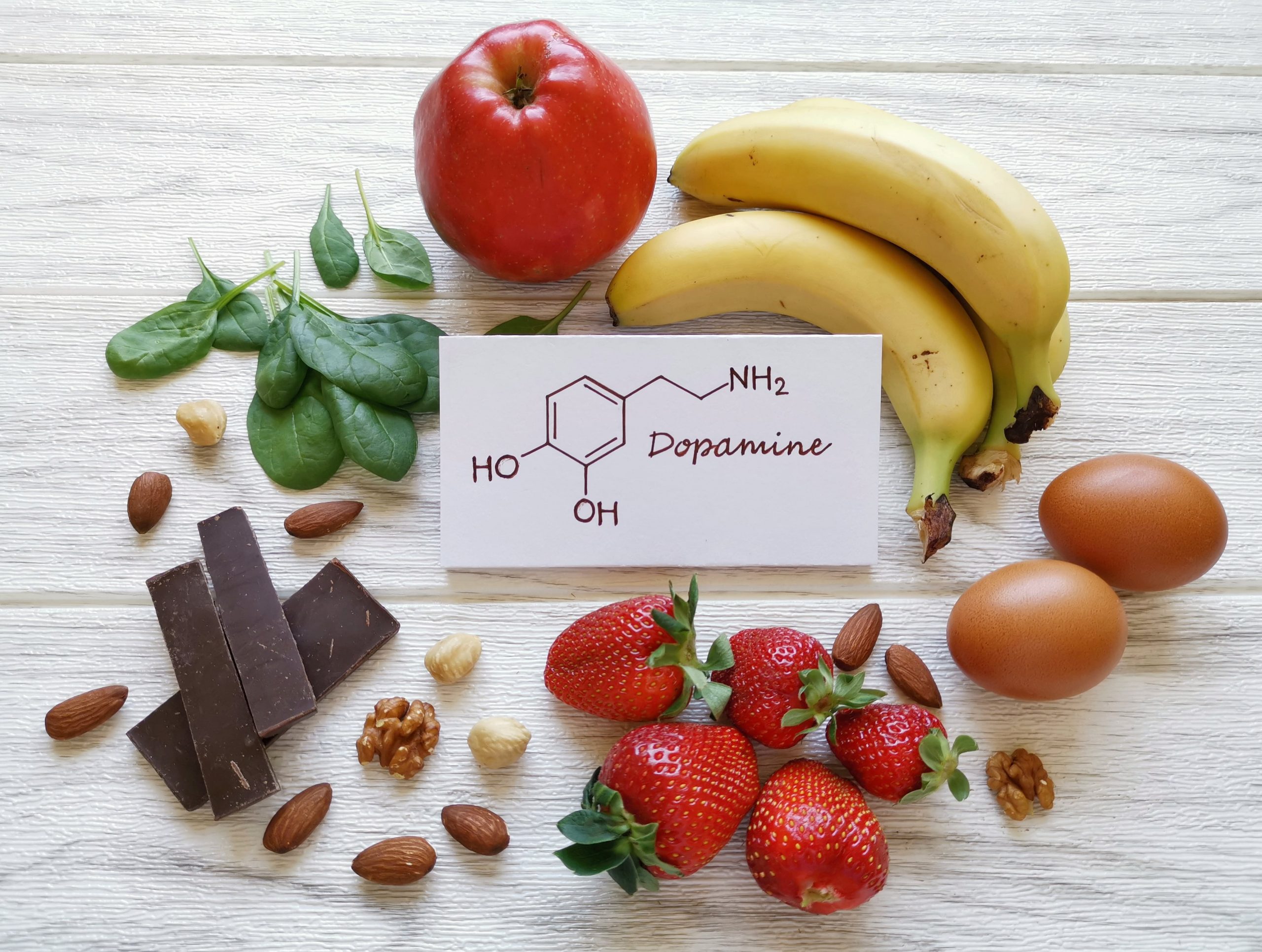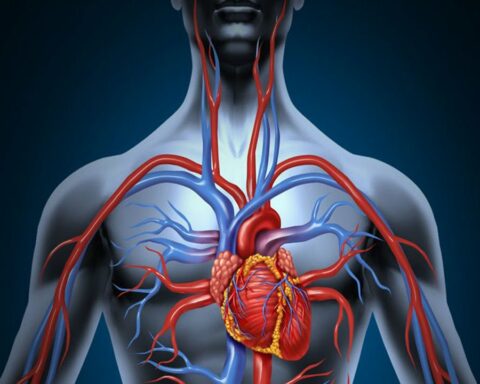Diet rich in protein, probiotics, less saturated fats, vitamins, and minerals have been found to help the body produce more dopamine. Changes in lifestyles, such as exercising, getting quality sleep, mediation, listening to music, and exposure to sunlight, can boost dopamine levels.
Dopamine hormone, also called the feel-good hormone, has many other functions in the body. This chemical messenger is involved in memory, reward, attention, motivation, and regulating body movements. High amounts of dopamine in the body create a good feeling of reward and pleasure that enable individuals to repeat the causing behavior. Conversely, low dopamine levels are associated with reduced enthusiasm and motivation for things that do not excite people. The brain and the nervous system are responsible for regulating this hormone; nevertheless, you can do things to increase its secretion.
Consuming lots of protein
Protein contains bodybuilding blocks called amino acids. One of the essential amino acids responsible for dopamine production is tyrosine. The body contains an enzyme that converts tyrosine into dopamine, meaning that increased levels of tyrosine increase dopamine. The production of tyrosine is also enhanced by phenylalanine amino acid. Protein-rich foods such as legumes, beef, soy, turkey, dairy, and eggs have phenylalanine and tyrosine amino acids, which increase dopamine in the brain.
Reduce Your Consumption of Saturated Fat
Some studies link the consumption of saturated fats like butter, animal fat, coconut oil, palm oil, and dairy fat with low dopamine secretion in the brain when consumed in large amounts. Though the results are fascinating, these studies were conducted in rats. In one study, the rats were given half their daily calories from saturated fat, with the research found that the rats’ brains had reduced dopamine signals than those fed from unsaturated fats.
Some scientists theorize that diets rich in saturated fats cause increased body inflammation, contributing to alteration in the dopamine system; however, additional research is required. Interestingly, some observational studies also link high saturated fat with poor cognitive functions and memory in humans. However, it is not established whether these effects have a connection with dopamine levels.
Increase Your Intake of Probiotics
Studies have shown that a person’s gut health is connected to their brain functions. Interestingly, the gut is often called the second brain because it contains many nerve cells, producing several neurotransmitter molecules, such as dopamine, for better health. Furthermore, some studies have shown that certain bacterial species living in the gut can also produce dopamine, thus impacting behavior and moods. Other studies in this area indicate that certain bacterial strains can minimize symptoms of depression and anxiety in humans and animals.
Include Velvet Beans in Your Diet
Velvet beans are rich in protein (L-dopa), a precursor molecule responsible for dopamine production. Studies conducted on people with Parkinson’s disease have found that consuming velvet beans could help improve dopamine levels, thus contributing to better moods. For example, a study on people with Parkinson’s disease showed that a daily intake of 250 grams of velvet beans could reduce the disease’s symptoms a few hours after the meal. However, consuming high amounts of beans can be toxic, so care should be taken in moderately consuming these beans.
Regular exercise
Several studies suggest that exercise improves mood by boosting endorphin levels. A twenty-minute aerobic exercise can contribute to good moods as it increases dopamine levels in the brain. When they are stressed, people blow out steam by going for a run or a walk, which reduces stress hormone and increases a feel-good (dopamine) chemical in the body. One animal study put rats on a running treadmill and found that their dopamine release was heightened during exercise.
Additionally, one study found that doing yoga exercise for one hour six days a week increased dopamine levels. However, some studies have not found the connection between exercise and dopamine levels in adults. Regular aerobic exercises were found to help individuals with Parkinson’s disease by increasing their dopamine levels, thus promoting their ability to move.
Sleep Enough
Dopamine secretion is associated with wakefulness and alertness. Several animal studies suggest that dopamine hormone is produced in high amounts in the morning, and the level reduces at night during sleeping time. Lack of sleep has been discovered to interfere with these natural rhythms, with investigation showing that individuals who stay awake throughout the night have reduced dopamine receptors the next morning. Researchers suggest that low dopamine could result in certain unpleasant consequences such as poor coordination and reduced concentration. A balanced sleep (7-9 hours of night sleep) will help balance dopamine levels, making you feel alert during the day.
You achieve better sleep hygiene by forming a habit of sleeping and waking at similar times daily, reducing caffeine intake in the evening, and minimizing noise in the bedroom.
Listen to Music
Listening to soothing music has also been found to improve activity in the pleasure and reward areas of the brain, which stimulate dopamine receptors. One small study established that chills stimulating instrumental songs increased brain dopamine by 9%. Most doctors even recommend listening to music for people with Parkinson’s disease to help improve their motor control. Instrumental music has been the basis of studies on dopamine, but with no specific lyrics.
Meditation
Practicing mediation help clear one’s mind and is linked to improved physical and mental health. New studies show that mediation can increase the brain’s dopamine levels. For instance, one study involving eight meditation teachers found that one hour of meditation increased dopamine levels by 64% than those resting.
Get Enough Sunlight
Lack of enough sunlight cause seasonal affective disorder, a condition that causes sadness or a feeling of depression during winter. Low sunlight exposure negatively affects mood-boosting neurotransmitters, meaning people tend to have less dopamine with less sunlight. Though sunlight can help boost your dopamine levels and better your moods, you should take care since too much sunlight can be harmful.
Take Supplements
The body creates dopamine by using minerals and vitamins, including vitamin B6, iron, folate, and niacin. Supplements can help boost a deficiency of any of these nutrients, thus enabling your body to synthesize enough dopamine. Blood examination can be used in determining any deficiency so that you can know what supplements to incorporate into your diet. Supplements such as vitamin D, magnesium, oregano extract, curcumin, and green tea have been linked with high dopamine levels.
The Bottom Line
Dopamine is a chemical compound naturally secreted in the body to improve moods and feelings of motivation and reward. A change of diet and behavior can help improve dopamine levels in the brain and body. Diet rich in protein, probiotics, less saturated fats, vitamins, and minerals have been found to help the body produce more dopamine. Changes in lifestyles, such as exercising, getting quality sleep, mediation, listening to music, and exposure to sunlight, can boost dopamine levels.









